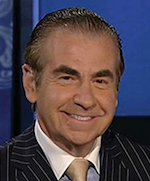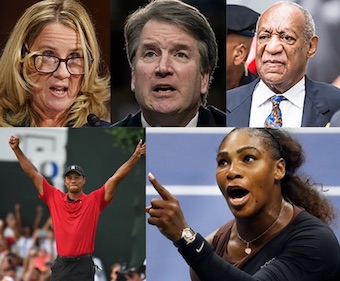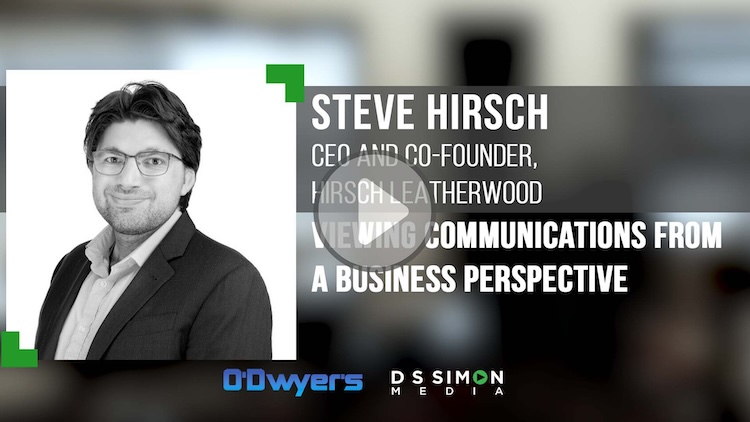 Fraser Seitel
|
The headline in the unabashedly liberal/virulently anti-Trumpian New York Times was so jarring, it had to be reread to be believed: “Trump Hit Iran With Oil Sanctions. So Far, They’re Working.”
The story went on to explain that, despite predictions, Trump’s unilateral decision in May to withdraw from the Iranian nuclear deal would either cause oil prices to spike or isolate the U.S. as the only nation not trading with Iran. “But,” concluded the Times in what may have been a first, “the policy has been effective without either of those nasty consequences, at least so far.”
Few people, of course, noticed the Times’ grudging commendation of the man liberals love to hate. Indeed, while more objective observers might credit this President for a roaring economy, lowering jobless rate, increased take-home pay for most Americans, détente with North Korea, not to mention having the chutzpah to demand for the first time in history that U.S. trading partners stop taking us for granted and play fair, Trump’s approval numbers continue to sink.
But why?
 |
The answer is that the President, who, objectively, might have achieved more in two years than any of his recent predecessors, is also widely perceived as the most odious, offensive and polarizing political personality in anyone’s lifetime. In other words, he lacks the two secret weapons for public relations success: humanity and humility.
Humanity basically means showing compassion for others. Humility, on the other hand, is the quality of being humble, of not seeing yourself as the one and only best of the best.
In recent weeks, we’ve seen the best and the worst of these two qualities on display in a variety of headline quarters.
Christine Blasey Ford v. Judge Brett Kavanaugh. The Ford/Kavanaugh hearing, which satiated the nation’s political bloodlust but didn’t much benefit the quest for justice, is Exhibit A for humility.
Dr. Ford showed herself a quick learner from the week long-presentation training crash course her Democrat Party handlers provided. She came across as sincere, confident, helpful, naïve but earnest in easily parrying the disjointed questions from the Republicans’ bumbling prosecutor. She was a picture of humility, backed by certainty, which clearly won points for the anti-Kavanaugh constituency.
The judge, up until that fateful hearing, also comported himself with both humility and humanity, remaining deferential throughout his confirmation grilling, as the parade of posturers preened before the cameras. Facing Armageddon at the Dr. Ford showdown, Kavanaugh’s even-keeled demeanor flipped. Buried in a withering barrage of unsubstantiated and damning public allegations designed to destroy him, Kavanaugh had little choice but to go full-out Clarence Thomas and lash out at his accusers.
The humility he had demonstrated earlier had understandably taken a back seat as he fought for his life.
There was no humility to be found in the case of sex offender Bill Cosby who, despite all the evidence against him, refused to utter one word of contrition or apology. He remained imperious over many years, even as evidence against him mounted.
Unlike the Kavanaugh case, Cosby’s guilt was never in doubt. His decades-long preying on vulnerable women was indefensible. Long ago, his goose, as they say, was cooked. Nonetheless, even at the moment of his finally coming to cloture for the crimes he committed, Cosby — through a spokesman, no less — insisted he was framed and being made a scapegoat. In the final analysis, Daddy Huxtable lacked humility and humanity.
Tiger Woods, on the other hand, evidently took time during his medically-induced sabbatical from public life to learn the virtues of these two indispensable traits.
Tiger, you’ll recall, was once the world’s greatest golfer, whose successes knew no limit, until he was caught up short by dodging a golf club thrown by his wife, crashing his car and being exposed as a serial philanderer. After divorce, treatment for sex addiction, losing his golf game and undergoing four back surgeries, in September Woods won his first PGA golf tournament in five years.
In his post-tournament interviews, gone was the arrogance and diffidence and robotic answers that marked the pre-crisis Woods. Instead, Tiger answered questions sincerely, thoughtfully and even humbly, correctly thankful for the second chance he’d been given and reluctant to predict that he would soon — or ever — return to the form of old.
Tiger had discovered that a dose of humility — even if you might be the best in the world — goes a long way.
Perhaps he could teach that lesson to his friend Serena Williams.
Williams, clearly the best women’s tennis player ever, suffered a major meltdown at last month’s U.S. Open Finals, which, despite being defended by many broadcast and print tennis toadies, demonstrated that the racket queen has a long way to go on the humanity/humility scale.
After an umpire’s questionable but legitimate call that she had received illegal coaching, Williams went wild. First, she excoriated the official for having the nerve to imply she was a “cheater.” Then, after losing a point, she demolished her racket and, in a display of breathtaking hubris, demanded the umpire “apologize” to her and then, for good measure, called him a “thief” and a “liar.”
Not only did Williams’ selfish tantrum ruin the day for Naomi Osaka, the young Japanese-American champion who beat her handily, it underscored that the mega-talented/mega-wealthy Serena, like the President, still has a lot to learn about the public relations power of being humble and human.
***
Fraser P. Seitel has been a communications consultant, author and teacher for 40 years. He is author of the Pearson text “The Practice of Public Relations,” now in its 13th edition, and co-author of “Rethinking Reputation" and “Idea Wise.”










 Have a comment? Send it to
Have a comment? Send it to 
No comments have been submitted for this story yet.